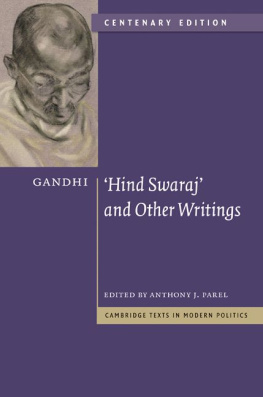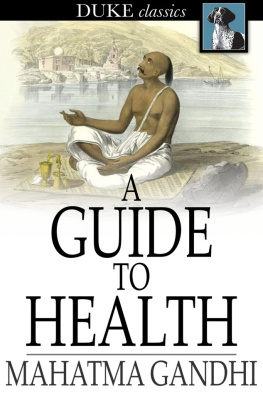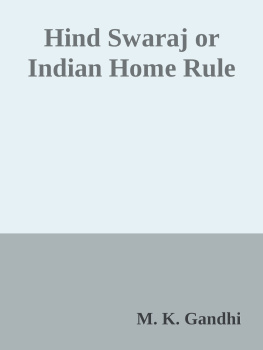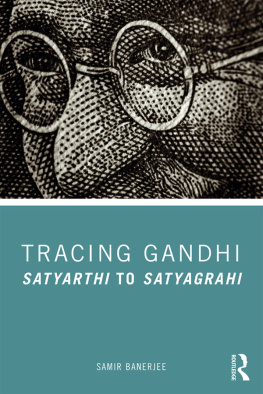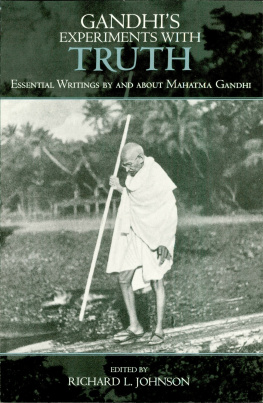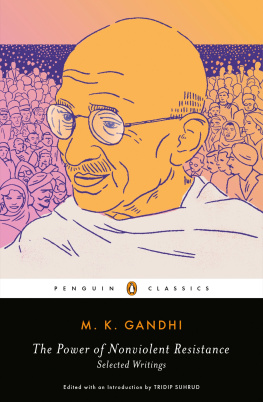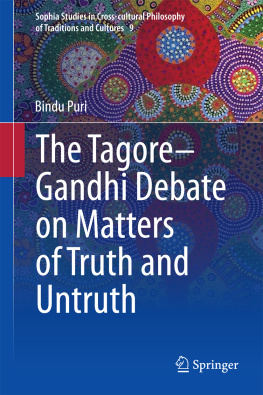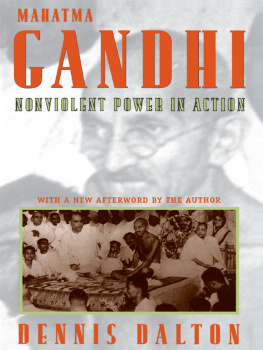Editors
John Dunn
King s College, Cambridge
Geoffrey Hawthorn
Faculty of Social and Political Science, University of Cambridge
Political aspirations in the twentieth century are usually expressed in the political languages of Western Europe and North America. In Latin America, Africa and Asia, however, in the movements of national liberation from colonial rule, in the justification of new states, and in the opposition to such states, these aspirations have also drawn on other traditions, and invented new ones. Outside the West, the languages of modern politics and the ideas these languages embody are nowhere simple, and almost nowhere derivatively Western. But for students and scholars access to the relevant texts is not easy.
Cambridge Texts in Modern Politics are intended to remedy this by providing editions in English (often for the first time) of texts which have been important in the politics of Latin America, Africa and Asia in the later nineteenth century and twentieth century, and which will continue in importance into the twenty-first. The editions will be authoritative and accessible, and can be used with confidence by students and teachers as a source. Each text will be edited by a specialist in the history and politics of the area concerned, whose introduction will explain its context, provenance and significance. Readers will also be provided with a chronology of events, brief biographies of relevant individuals and guides to further reading.
Cambridge Texts in Modern Politics
M. K. GANDHI
Hind Swaraj and other writings

Portrait of Mahatma Gandhi in London, 1909 Dinodia Images / Alamy.
Hind Swaraj
and other writings
Centenary Edition
Edited by
Anthony J. Parel
University of Calgary, Canada
CAMBRIDGE UNIVERSITY PRESS
Cambridge, New York, Melbourne, Madrid, Cape Town, Singapore, So Paulo, Delhi
Cambridge University Press
The Edinburgh Building, Cambridge CB2 8RU, UK
Published in the United States of America by Cambridge University Press, New York
www.cambridge.org
Information on this title: www.cambridge.org/9780521146029
in the editorial matter, Anthony J. Parel 2009
This publication is in copyright. Subject to statutory exception and to the provisions of relevant collective licensing agreements, no reproduction of any part may take place without the written permission of Cambridge University Press.
First published 1997
Centenary edition 2009
Printed in the United Kingdom at the University Press, Cambridge
A catalogue record for this publication is available from the British Library
ISBN 978-0-521-19703-8 Hardback
ISBN 978-0-521-14602-9 Paperback
Cambridge University Press has no responsibility for the persistence or accuracy of URLs for external or third-party Internet websites referred to in this publication, and does not guarantee that any content on such websites is, or will remain, accurate or appropriate.
To Rolande
Contents
Preface to the centenary edition
The centenary of Hind Swaraj and recent developments in Gandhi scholarship have prompted the issuing of a revised centenary edition. The discovery that Gandhi had made the theory of the canonical aims of life (, 2008). The Introduction to this edition takes due note of this. Supporting evidence from Gandhis writings has been added. They include the Introduction and Farewell to his Autobiography , the Introduction to his translation of the Bhagavad Gita and his Foreword to Gokhales Speeches . The GandhiNehru dialogue has been updated in view of the new materials that have come to light. Finally, new footnotes on such key topics as civilisation, technology and the place of the English language in India have been added. On the debit side, in the interest of keeping this edition within reasonable length, the GandhiWyberg letters and materials relating to Gandhis Quit India speech have been dropped.
Acknowledgements
In preparing this work for publication I have been very fortunate in receiving generous help from a number of colleagues from different parts of the world Canada, India, Great Britain, the United States and South Africa and it gives me great pleasure to express my gratitude to each of them. T. K. N. Unnithan first encouraged me to undertake this project; Christopher A. Bayly, Philip Charrier, Margaret Chatterjee, Dennis Dalton, James Hunt, Bhikhu Parekh and Anil Sethi read various versions of my introduction and notes and suggested ways of improving them. Jayshree Joshi, Nathubhai Joshi, Ramanbhai Modi and C. N. Patel spent many hours with me going over the Gujarati background of Gandhi and Hind Swaraj . Umesh Vyas very generously checked the references to the Gujarati text. Richard Bingle, Martin Moir and Edward Moulton helped me find valuable bibliographical data. Irene Joshi of the University of Washington Library found for me the TolstoyTaraknath Das material. Hasim Seedat of Durban put at my disposal his private Gandhi library.
I am most grateful to the Shastri Indo-Canadian Institute for a Senior Research Fellowship for the 1990 fall term and to the University of Calgary for a Killam Resident Fellowship for the 1992 winter term. A Visiting Fellowship at Clare Hall, Cambridge, for the 1994 Lent and Easter terms helped me greatly in the final stages of this work. Carolyn Andres of the Department of Political Science, University of Calgary, has been very diligent in getting the typescript ready.
My special thanks go to John Dunn and Geoffrey Hawthorn for inviting me to contribute to their series and for their editorial advice.
John Haslam and Anne Dunbar-Nobes of Cambridge University Press have exercised mahatma-like patience and skill in getting this volume ready for publication. To them my sincere thanks.
It is with great pleasure that I thank the Navajivan Trust and the Nehru Trust for their permission to use materials under their control.
Finally I thank my long-suffering wife Rolande, who, Kasturba-like, endured cheerfully my absences from home on visits to India, South Africa and Cambridge. This work is dedicated to her in partial fulfilment of my family obligations and abiding love.

